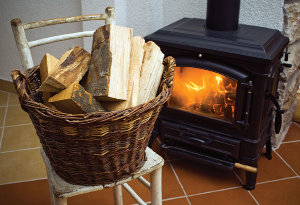Failure to provide heating costs
Landlords must provide an approved form of heating in their rental properties – and ensuring there are working power points is no longer enough.
Friday, August 10th 2018, 11:00AM
by Miriam Bell

No one knows exactly what the Healthy Homes Guarantee Act minimum standards will require from landlords when it comes to heating.
Yet two recent Tenancy Tribunal decisions have awarded tenants exemplary damages for their landlords’ failure to provide an approved form of heating.
In one case, a Raglan property manager was told by the council that they did not need to provide a heater as having a power point in the lounge was enough.
But the Tribunal disagreed and awarded the tenant $500 in damages.
In another case, the heater supplied by the landlord stopped working leaving the tenants with no source of heating and the landlord did not respond to the tenants’ request to remedy the situation.
While the tenants only sought compensation for this, the Tribunal also awarded them $2,500 in damages.
In both cases, the Tribunal cited the Housing Improvement Regulations 1947, saying they mean an approved form of heating must be provided and that failure to comply with this is an unlawful act.
In the Raglan case, the Tribunal notes the definition of “approved form of heating” may differ between councils, but “it is more than supplying a plug in the lounge for something to be connected to”.
Auckland Property Investors Association (APIA) president Andrew Bruce says this seems to be a new interpretation of the regulations and he hasn’t heard it before.
While MBIE is set to release a consultation paper on the upcoming minimum standards (including heating sources) shortly, but no one knows what will be recommended yet.
“That means we are in no man’s land for now, but how the Tribunal is interpreting these things seems to be in advance of the standards.
““You can’t just penalise someone for not doing something that they don’t know they have to do and which there isn’t clear guidance on.”
The Housing Improvement Regulations 1947 are not unknown to serious landlords but it does seem the Tribunal is applying them in a new way when it comes to heating.
NZ Property Investors Federation executive officer Andrew King says they actually say landlords need to ensure a fireplace or chimney or an approved source of heating is fitted into every living room.
“In the past, ensuring there are working power points for tenants to plug their own heaters into has been deemed sufficient. But that has changed recently.”
It seems unreasonable to change what has been practiced for many years just as minimum standards - which will lay down specific guidelines about the type of heating sources landlords have to provide - are coming, he says.
“The Tribunal’s decisions leave us very much in limbo on this. It seems that landlords can be fined for not providing a heater yet it is unclear what type of heater landlords are supposed to provide
“We are concerned that landlords could spend money putting in a heater/heating system to avoid being fined and then find out it is not the right one under the minimum standards.That could end up being very costly.”
King says he has asked for clarification on this from the Tribunal’s principal adjudicator, Melissa Poole, but hasn’t yet received any.
While MBIE is set to release its consultation period on the minimum standards over the coming month, the finalised standards are unlikely to be law until next year at least.
In the meantime, landlords should check to see if their local council has a list of approved forms of heating under the Housing Improvement Regulations 1947.
If the council doesn’t have such a list, King suggests that landlords should supply inexpensive plug in heaters for their tenants, if they don’t already.
APIA suggests that landlords install energy efficient and clean burning forms of heat sources, like heat pumps, whenever practicable.
| « Proof rent can be paid crucial | Bond, insulation breaches prove costly » |
Special Offers
Comments from our readers
No comments yet
Sign In to add your comment
| Printable version | Email to a friend |


